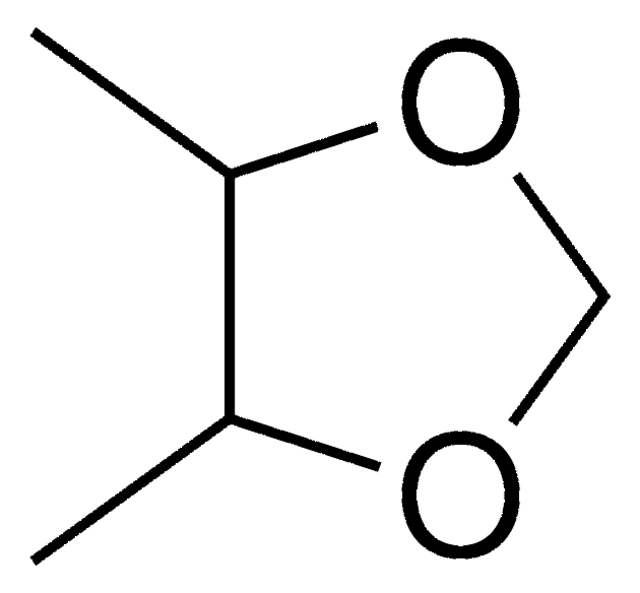292206
2-Methyl-1,3-dioxolane
97%
Sinónimos:
Acetaldehyde ethylene acetal
About This Item
Productos recomendados
assay
97%
refractive index
n20/D 1.398 (lit.)
bp
82-83 °C (lit.)
density
0.982 g/mL at 25 °C (lit.)
SMILES string
CC1OCCO1
InChI
1S/C4H8O2/c1-4-5-2-3-6-4/h4H,2-3H2,1H3
InChI key
HTWIZMNMTWYQRN-UHFFFAOYSA-N
¿Está buscando productos similares? Visita Guía de comparación de productos
Categorías relacionadas
General description
signalword
Danger
hcodes
Hazard Classifications
Flam. Liq. 2
Storage Class
3 - Flammable liquids
wgk_germany
WGK 2
flash_point_f
28.4 °F - closed cup
flash_point_c
-2 °C - closed cup
ppe
Eyeshields, Faceshields, Gloves, type ABEK (EN14387) respirator filter
Certificados de análisis (COA)
Busque Certificados de análisis (COA) introduciendo el número de lote del producto. Los números de lote se encuentran en la etiqueta del producto después de las palabras «Lot» o «Batch»
¿Ya tiene este producto?
Encuentre la documentación para los productos que ha comprado recientemente en la Biblioteca de documentos.
Los clientes también vieron
Nuestro equipo de científicos tiene experiencia en todas las áreas de investigación: Ciencias de la vida, Ciencia de los materiales, Síntesis química, Cromatografía, Analítica y muchas otras.
Póngase en contacto con el Servicio técnico










